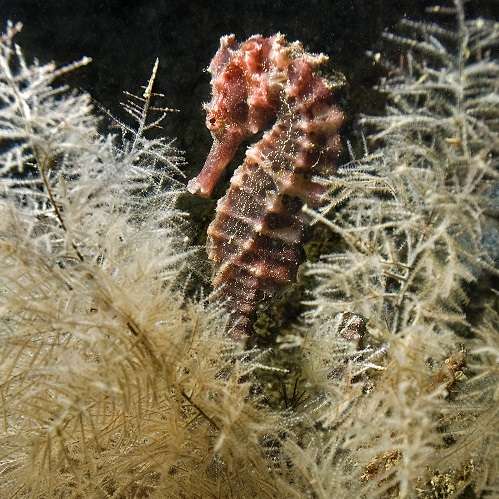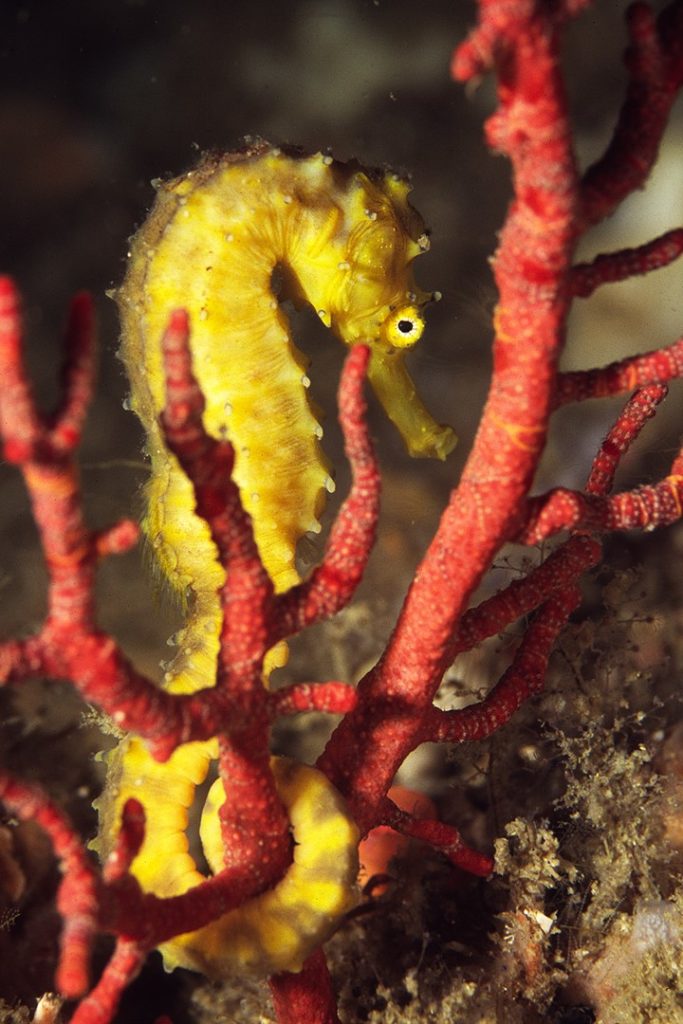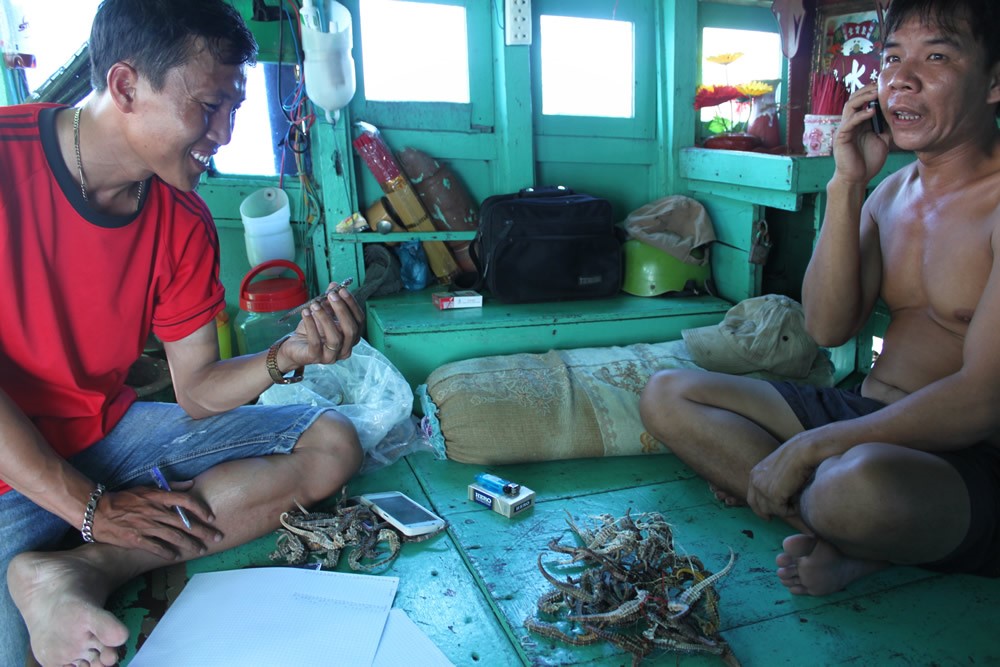Seahorses in Vietnam

Helping Vietnam to improve its management of seahorse populations and meet its obligations under the Convention on International Trade in Endangered Species of Wild Fauna and Flora (CITES).
Funding for this project has now finished
Seahorse biology, fisheries and trade
This project targets all seven seahorse species in Vietnam’s trade: Hippocampus comes, H. histrix, H. kelloggi, H. kuda, H. spinosissimus and H. trimaculatus are Vulnerable; H. mohnikei is Data Deficient.
The seas around Vietnam are home to some rare and beautiful species of seahorse, some of which are traded internationally. CITES obligations state that any exports of seahorses must not damage wild populations but making sure that this happens in practice is no easy task.
Working with Project Seahorse, we will help the Vietnamese authorities to understand more about seahorse biology, fisheries and trade. Together with the Vietnamese government and other experts, we will help improve the country’s management of seahorses to a level where wild populations can tolerate carefully monitored and regulated exports.
Vietnam needs information and guidance to help set safe export levels and the CITES Secretariat and the CITES Authorities in Vietnam have both asked Project Seahorse, the recognised global authority on seahorses, to support them in doing this.
Difficulties in meeting its obligations has already led CITES to ban Vietnam from exporting one species of seahorse – H. kuda. This is the first global export ban ever imposed on any country for any fully marine fish species under any agreement. Exports of the other seahorse species also need urgent attention. Unfortunately, existing fisheries and trade data for Vietnam aren’t up to scratch. We have data from trade surveys carried out by Project Seahorse in the late 1990s and the CITES database of international trade in seahorses since 2004. The former is outdated and the latter is full of inconsistencies and too general to be useful for national-scale management.
National assessment
This project will support a vital national assessment of seahorse fisheries and trade. This is turn will lead to much-needed management modifications. Our work will allow national authorities to evaluate any changes that have occurred since the late 1990s. It will also set a new baseline for future monitoring, and develop a targeted management response to unsustainable exports. We will conduct a six-month survey, gathering information on seahorse fisheries, trade and biology in Vietnam. The next stage involves taking these finding and advising Vietnam on how best to manage their seahorse populations. The team will focus on remedial actions to address the under-regulated trade, such as fisheries management measures, spatial planning and export restrictions. Critically, we intend to generate a fisheries dependent monitoring plan for seahorses in Vietnam so that national agencies will be able to detect and address conservation concerns as they emerge. Such adaptive management will help secure the future for seahorse populations as well as helping Vietnam meet its obligations to CITES.
Thank you to all our donors who helped us fund this work. You can help us support more projects like this with a donation today:



